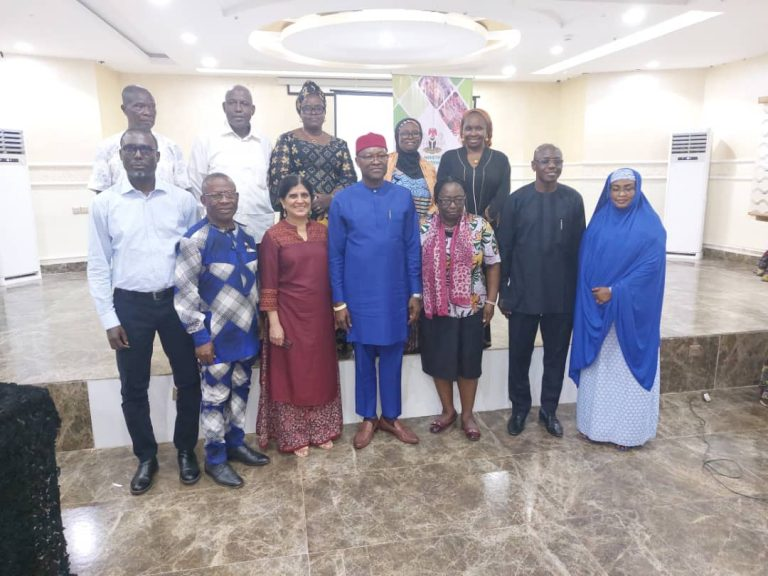By Tony Obiechina, Abuja
The Federal government has restated commitment to the implementation of the food system transformation pathway across the States.
The Permanent Secretary, Budget and National Planning Engr. Nebeolisa Anako stated this during the meeting of the National Steering Committee on Implementation of the Food Systems held at the Hilton Leisure Hotel, Awka, Anambra State.
He disclosed that the National Steering Committee is representative of all the six geo-political zones, with all states in focus and it is saddled with the responsibility of providing directions for the achievements of the implementation of the food system transformation in Nigeria, adding that the Committee also serves as a policy level think-tank for effective implementation of the Transformation Pathways in Nigeria.
He pointed out that with the emergence of a new administration both at the National and State levels, the committee is expected to convince the new government in their various States that some robust ideas and initiatives will make Nigeria achieve successful implementation of the Food Systems Transformation Pathway that will serve as a model for other countries across the Globe since Nigeria is rated as champion in the implementation process by the United Nation (UN) Food Systems Coordination.
The Permanent Secretary recalled that the immediate past Minister of State, Budget and National Planning, Prince Clem Ikanade Agba, at the inaugural meeting of the Steering Committee mentioned that there was no better time to inaugurate the committee than when the Country was transiting from the President Mohammadu Buhari’s Administration to a new one on May 29, 2023.
He noted that the Committee is expected to provide direction for zonal coordination of the implementation of the food systems transformation pathways in all the 36 states, including the FCT; receive updates from the states in the six geopolitical zones; and lead advocacy to the State Governors and Governors’ Forum.
Engr. Anako further stated that the purpose of the meeting is to receive a brief update on the level of implementation of the food systems transformation across the zones and all states, and also discuss the upcoming activities including the Retreat of Permanent Secretaries and Directors of coordinating States in each zone; Zonal Mapping of Farm Estates and School Gardens initiatives; and Nigeria preparation for the Stock Taking Moment in Rome from 24 -26 July 2023.
Speaking further Engr. Anako said that for Nigeria to have a successful outing at the upcoming Stock Taking Moment in Rome, the UN Secretary-General through the Food Systems Coordination Hub has approved a high-level Side Event for Nigeria to be chaired by the President or the Vice President of Nigeria.
He added that the High-level event will be a platform for bringing World leaders, Captain of Agro-Allied Industries, investors, and private food-related organizations to the discussion of innovative financing for the food system transformation Pathway to showcase the efforts of Nigeria on innovative funding for food systems towards attracting private sector investment in the food Systems, diaspora and donors’ intervention as well as foreign direct investment by financial and other food-based institutions.
In her remarks, the Country Director International Fund for Agricultural Development (IFAD) Mrs. Dede Ekuoe congratulated the Federal Government and the Ministry for their proactive approach in organizing the meeting of the Steering Committee after the zonal consultation which was held at Awka and Kano respectively.
She said, “in line with its mandate, IFAD supports the Food Systems transformation agenda by enhancing smallholder farmers productivity, profitability and access to market, fostering the economic empowerment of rural youth and women along the agricultural value chain, strengthening climate change resilience and adaptation of rural communities among others”.
The National Convener, Dr. Sanjo Faniran in his presentation emphasized the importance of food systems as it touches every aspect of human existence, economy, environment, and culture.
Dr. Faniran pointed out that the UN Food System Summit guides Governments and other stakeholders to identify and implement reforms that would transform food systems toward achieving the Social Development Goals (SDGs).
He added that the “Food System encompasses all the elements and activities involved in production, processing, distribution, preparation and consumption and wastage of food”.


